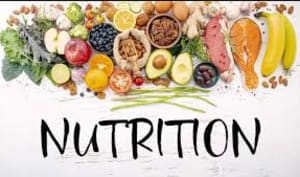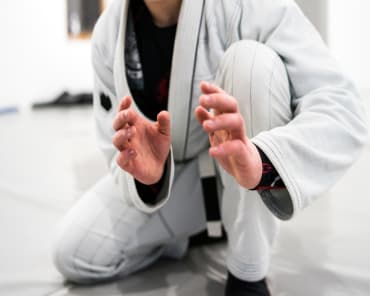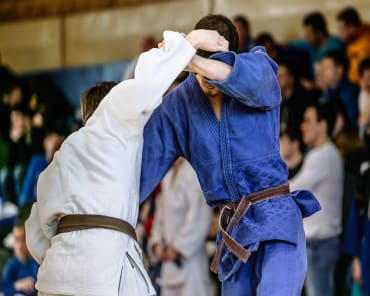
To excel in Brazilian Jiu-Jitsu (BJJ), maintaining a balanced diet and proper nutrition is crucial. The right fuel can enhance your performance, speed up recovery, and keep you in peak physical condition. Here are some essential diet and nutrition tips for Jiu-Jitsu practitioners.
Balanced Macronutrients
Your diet should include a balanced mix of macronutrients: carbohydrates, proteins, and fats. Each plays a vital role in your performance and recovery.
- Carbohydrates: These are your primary energy source. Opt for complex carbs like whole grains, fruits, and vegetables to provide sustained energy throughout your training sessions.
- Proteins: Essential for muscle repair and growth, include lean proteins such as chicken, turkey, fish, eggs, and plant-based options like beans and lentils in your diet.
- Fats: Healthy fats support joint health and provide long-lasting energy. Incorporate sources like avocados, nuts, seeds, and olive oil.
Hydration
Staying hydrated is critical for optimal performance. Dehydration can lead to fatigue, cramps, and decreased focus.
- Water: Aim to drink at least 8-10 glasses of water daily, and increase your intake on training days. Carry a water bottle to remind yourself to drink regularly.
- Electrolytes: During intense training, you lose electrolytes through sweat. Replenish them with electrolyte-rich drinks or foods like bananas, coconut water, and sports drinks.
Pre-Training Nutrition
What you eat before training can significantly impact your performance.
- Timing: Eat a balanced meal 2-3 hours before training to ensure you have enough energy without feeling heavy.
- Composition: Include a mix of carbs, proteins, and fats. For example, a chicken and vegetable stir-fry with brown rice.
- Snacks: If you’re short on time, have a light snack 30-60 minutes before training, such as a banana with a handful of nuts or a protein smoothie.
Post-Training Nutrition
Recovery starts immediately after training. Your post-training meal is crucial for muscle repair and replenishing energy stores.
- Proteins and Carbs: Consume a meal rich in proteins and carbs within 30-60 minutes post-training. For example, grilled salmon with quinoa and steamed vegetables.
- Hydration: Rehydrate with water or an electrolyte drink to replace lost fluids.
- Supplements: If needed, consider protein shakes or BCAAs (branched-chain amino acids) to support muscle recovery.
Consistent Eating Schedule
Maintaining a consistent eating schedule helps regulate your metabolism and ensures you have a steady energy supply.
- Meals and Snacks: Aim for 3 balanced meals and 2-3 healthy snacks throughout the day.
- Portion Control: Be mindful of portion sizes to avoid overeating, which can lead to sluggishness during training.
Specific Dietary Considerations
Every individual has unique dietary needs, but here are some general tips:
- Whole Foods: Focus on whole, unprocessed foods to maximize nutrient intake.
- Avoid Excess Sugar and Junk Food: These can lead to energy crashes and affect your performance.
- Listen to Your Body: Pay attention to how different foods affect your energy levels and digestion. Adjust your diet based on your personal needs and preferences.
Supplements
While a balanced diet should cover most of your nutritional needs, supplements can help fill gaps.
- Multivitamins: Ensure you’re getting all essential vitamins and minerals.
- Omega-3s: Support joint health and reduce inflammation.
- Probiotics: Promote gut health and improve nutrient absorption.
By following these diet and nutrition tips, you can optimize your performance on the mat, enhance your recovery, and maintain overall health. Remember, the right nutrition is a key component of your success in Brazilian Jiu-Jitsu.






